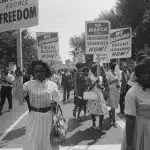A lot of college applications ask for essays—sometimes more than one—and that can feel overwhelming. For example, Stanford asks for two essays, while Harvard wants you to write five. It’s easy to feel stuck, but the truth is, the college essays that worked for top schools aren’t your average ones. They’re so impressive that even the pickiest schools can’t say no.
Getting into Ivy League schools is tough. The smartest students from all over the world apply, so the chances of getting accepted are really slim. For example, Princeton’s acceptance rate is just 4.6%, and Yale’s is even lower at 3.7%. With so many applicants submitting amazing profiles, you’ll need to find a way to stand out. The good news is that your essay is a great place to do that.
A few simple tips, a bit of self-reflection, and an understanding of what admissions officers actually want can make things a lot easier. In this blog, we offer five practical tips that have proven effective for gaining admission to Ivy League schools. Additionally, we include examples to help you write compelling essays.
- What Are the Qualities of a Great College Essay?
- Common Qualities of College Essays that Worked for Ivy League Schools
- Frequently Asked Questions
- Takeaways
What Are the Qualities of a Great College Essay?
A great application essay gives a glimpse into who you really are.
The secret to a lot of the college essays that worked is that they tell a well-rounded story or highlight a part of your life in a way that feels lively and real. They show your values, strengths, interests, volunteer work, and life experiences all at once.
Many of them also aren’t afraid to show a bit of vulnerability. Admissions officers want to see how your values, skills, and qualities will thrive in college—and, of course, how well you can write.
Lastly, a good essay gets straight to the point and answers the prompt clearly. Sometimes, you can go with the flow and write more freely. But when you’re dealing with specific prompts, you really have to answer them directly.
Admissions officers definitely want to hear your story, but more than anything, they want to see that you’ve actually responded to the prompts. No matter how amazing your answer is, it won’t count for much if it doesn’t address the question as clearly and directly as possible.
It doesn’t matter if it’s a supplemental essay, personal statement, Common App essay, or diversity essay—the examples below can help you understand how to follow a college essay format and use some helpful tips to boost your chances of getting into your dream school.
Common Qualities of College Essays that Worked for Ivy League Schools
Ivy League schools are super selective, so they look for certain things in personal and supplemental essays that go beyond just good writing. Here are some of the main things they typically look for and have worked in some of the students we’ve worked with before:
1. Authenticity
Admissions officers can tell right away if you’re being real or just saying what you think they want to hear. Yale’s website says this about being true to yourself: “Use your own voice. Do not worry about making a special effort to include impressive vocabulary words or overly complex sentences. If you sound like yourself and discuss something you care about, your essay will be more effective.”
Being authentic means letting your true self show in your essay—from your voice to your experiences and even your imperfections. Since some essays have tight word limits, it’s smart to be genuine right from the beginning.
A strong and honest opening can catch the reader’s attention fast. Some of the college essays that worked did this by starting with a personal story that actually meant something to the writer. It’s better to skip the clichés and generic lines and jump straight into a story or point of view that’s truly yours.
For example, instead of starting with something like, “I’ve always wanted to change the world,” try something more personal and real, like:
I never thought a broken coffee machine could teach me so much, but the day it exploded all over the school cafeteria, I learned more about leadership than I ever did in any class.
This kind of opening shows a bit of humor, a real experience, and hints that there’s a story worth reading.
2. Unique perspective or story
Admissions officers go through thousands of essays, so having a unique angle or story can really help yours stand out. Harvard, for example, considers “academic achievements, extracurricular activities, personal qualities, and life experiences.” Sounds pretty generic advice, but those qualities actually mean a lot more than they seem.
The good news is that you don’t need to have climbed Mount Everest or started a nonprofit at 16 to impress them. Sometimes, the most powerful essays are about everyday experiences like working a part-time job, dealing with a family challenge, or even a small but meaningful conversation. What matters is how you tell your story and the perspective you bring to it.
To make your essay stand out like the college essays that worked, try focusing on how you see the world, what you’ve learned from your experiences, or how a seemingly ordinary moment shaped you. Sharing your unique way of thinking or making unexpected connections between different parts of your life can leave a lasting impression.
Being specific also helps. Instead of saying you love reading, for example, write about how a particular book changed the way you see something in your life:
I used to think of time as a straight line—moving forward, never bending. Then I read Einstein’s Dreams by Alan Lightman, and suddenly, time wasn’t so rigid anymore.
One chapter describes a world where time runs in circles. People relive moments endlessly—falling in love for the first time again and again, making the same mistakes, never escaping their loops. It made me wonder: what if some parts of my life are stuck on repeat?
I thought about the way I hold onto certain memories—like the last time I saw my grandmother, sitting on the porch, humming an old song. The way I play that moment over and over in my mind, afraid that if I stop, it’ll disappear. Maybe, in a way, my own time loops exist. Not in the way physics defines them, but in the way we all relive our joys and regrets.
Since then, I’ve started seeing time differently—not just as something that moves forward, but something we carry with us. Reading Einstein’s Dreams didn’t just change the way I think about physics; it changed the way I think about my own memories, my own past, and how I choose to hold on or let go.
Analysis: This college essay works well because it’s deeply personal, specific, and connects an intellectual idea (time in Einstein’s Dreams) to an intimate part of the writer’s life. It shows curiosity, introspection, and emotional depth—exactly what top schools love in essays!
3. Impact and leadership
Ivy League schools love students who show leadership and make a difference because they’re looking for people who can shape their campus and the world beyond. Some of the best college essays that worked highlight go-getters who take charge, solve problems, and inspire others—not just straight-A students.
One of Princeton’s essay prompts talks about the school’s focus on serving society and getting involved in the community. This is a great chance to show off your leadership skills. If you can share a story that proves you know how to lead and make a positive difference, it shows that you’ll probably keep doing that at Princeton—or at any Ivy League school—and even after you graduate.
Your impact doesn’t have to be huge. It’s not about changing the world overnight. What matters is that you took action and made something better, whether it was organizing a tutoring program at your school, helping a struggling neighbor with their groceries, or starting a conversation about mental health in your community.
Some of the college essays that worked focus on small but meaningful moments—like the time you turned your love for coding into a website that helped local businesses, or when you rallied your classmates to petition for better school lunches. Admissions officers want to see that you notice problems, care enough to do something about them, and have the persistence to follow through.
4. Clear connection to the school and its core values
It doesn’t matter how amazing your grades or test scores are—if you don’t seem like a good fit for the school’s core values, your application might not stand out. Ivy League schools want students who really connect with what they believe in, not just academically but also in terms of culture, values, and goals. That’s why it’s so important to show that you’ve done your research and understand what makes that school special.
In your supplemental essays, take a tip from college essays that worked and be sure to explain why you want to go to that specific school, not just any Ivy League college. Mention specific programs, professors, or clubs that match your interests and goals.
If a school values social justice and you’ve been involved in community projects, talk about how that connects to what you want to do in the future. Or, if a professor’s research really speaks to you, share why it matters to you. The more personal and detailed you can be, the better.
For example, Cornell’s College of Agricultural and Life Sciences looks for students who care about making a positive difference and social good. If you’ve ever done something meaningful for your community, the environment, or a group of people, share that story in your essay. It could be organizing a local cleanup, starting a garden to fight food insecurity, or anything else that shows you care about helping others. The goal is to show that your passions match what Cornell values.
5. Growth and resilience
Admissions officers want to see how you handle challenges because it shows a lot about who you are and how well you’ll deal with college life. Writing about a time when you faced a problem and learned something from it proves that you’re not just smart but also mature and determined.
College essays that worked often feature students who can bounce back from mistakes, figure out what went wrong, and use that experience to grow. Sharing a story about how you turned a tough situation into a learning experience makes your essay more relatable and shows that you’ve got the grit to handle whatever comes your way.
When you talk about a challenge, focus on what you did to overcome it, what you learned, and how it made you a better person. The goal is to show the steps you took to solve the problem and how that experience helped you build confidence, patience, or even a new skill. Even if the problem wasn’t a big one, showing what you learned from it can make a big difference.
For example, one of UPenn’s prompts asks you to write a short thank-you note to someone you haven’t thanked yet but really should. Here’s a sample response:
Dear Coach Ramirez,
I’ve never properly thanked you for the lesson you taught me that went way beyond the soccer field. When I missed that penalty kick in the championship game, I wanted to disappear. I was convinced I had let the whole team down. But instead of letting me dwell on it, you pulled me aside and told me that failure is just proof that I’m pushing my limits. You didn’t just brush it off, you made me reflect on what went wrong and how I could improve. That moment changed how I see mistakes, not just in sports but in everything I do.
Your belief that growth comes from trying, failing, and trying again has stuck with me. Since then, I’ve found myself taking more chances, both in class and in life, without that fear of falling short. Thank you for teaching me that resilience is about bouncing back, learning, and showing up anyway. I’m grateful for the confidence you helped me build, even when I couldn’t see it in myself.
College essays that worked is a chance to show how someone’s influence helped shape who you are and made you stronger and more resilient. It’s also a way to reflect on how their support or advice helped you grow and deal with challenges.
Final advice
Writing a genuine, powerful essay is one of the most important parts of your college application. Your grades and test scores can show that you’re smart and hardworking, but they can’t tell admissions officers who you really are.
College essays that worked are like windows that let admissions officers see what makes you unique—your values, your personality, and what you care about most. It’s your chance to share your story in a way that feels real and relatable. When you’re honest about your experiences, even the little ones, you help them understand the kind of person you’ll be on their campus.
The essays that get students into Ivy League schools aren’t just well-written with perfect grammar and a clear structure. What makes them unforgettable is how they reveal the true self of the student behind them. These essays show moments of struggle, growth, and honest self-reflection. It makes the reader feel like they really know you by the end.
A well-written essay doesn’t just impress; it connects. It makes admissions officers root for you because they’ve seen your passion, your challenges, and how you’ve grown from them.
Frequently Asked Questions
1. Does your personal essay matter to Ivy League schools?
Yes, your personal essay matters a lot to Ivy League schools. It’s your chance to show who you really are beyond grades and test scores, helping admissions officers see your personality, values, and potential fit for their campus.
2. Is there an Ivy League school that doesn’t require any essays?
No, all Ivy League schools require at least one essay as part of their application process. In addition to the main personal statement for the Common Application or Coalition Application, most of them also have supplemental essay prompts that ask about your interests, values, and reasons for wanting to attend that specific school.
3. Can a college admissions expert help me write better essays?
Yes, a college admissions expert can help you write college essays that worked by providing guidance on topics, structure, and how to highlight your strengths effectively. They can also offer feedback to make your essays more authentic, compelling, and in line with what admissions officers are looking for.
Takeaways
Writing a strong personal essay is super important when you’re applying to Ivy League schools. Consider these takeaways when you start drafting that application essay:
- Be authentic. Share your true self, including your experiences and imperfections, to help admissions officers understand who you are beyond grades and test scores.
- Offer a unique perspective. Present your story from a distinctive angle, even if it’s about everyday experiences, to make your essay stand out among thousands.
- Demonstrate impact and leadership. Highlight instances where you’ve made a difference, showcasing your initiative and potential to contribute positively to the campus community.
- Connect with the school’s core values and show growth and resilience. Show how your goals and values match the school’s culture and programs. Share challenges you’ve faced and how you overcame them to prove your maturity and ability to thrive in college.
- You can perfect your essay by practicing with the help of a professional. Partner with a college admission expert to help you improve your chances of getting into the school of your dreams.

Eric Eng
About the author
Eric Eng, the Founder and CEO of AdmissionSight, graduated with a BA from Princeton University and has one of the highest track records in the industry of placing students into Ivy League schools and top 10 universities. He has been featured on the US News & World Report for his insights on college admissions.






















